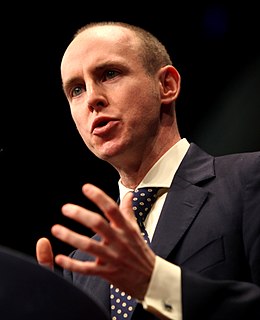A Quote by Sam Gyimah
Much of what we buy relies on products from the EU - purchases that British importers make in euros.
Related Quotes
Buy products of genuine lasting value from brands that take their manufacturing seriously. I have things that are 75 years old, like the dinner suit of my grandfather's that was made in 1933 by a tailor in Edinburgh. Clothes develop stories. You can remember where you've been through clothing that you've worn. I want products that are going to endure. I hate that we buy things that are disposable. We need to buy products with integrity.
At the end of the day, customer choice is essential. And we don't make products that compete with Apple, nor make products that compete with Google. Our customers come in both iOS and Android flavors, and I hope our customers can still buy the products they want to purchase wherever they want to purchase them.
I do not think the British want to become America's "Airstrip One," as the British Isles are called in George Orwell's "1984." The EU's internal market was a massive success even before the UK joined it, and it joined because there was no real alternative. So while British tabloids are expecting to be punished by Germany, Brexit is punishment in itself.
Our goal is to desperately make the best products we can. We're not naive. We trust that if we're successful and we make good products, that people will like them. And we trust that if people like them, they'll buy them. And we figured out the operation and we're effective. We know what we're doing, so we'll make money, but it's a consequence.
Is it in the interests of Britain to leave or remain in the EU? As we saw in the referendum, there are different Britains and they see their interests in different ways. For a lot of everyday blokes the EU affected their sense of identity in ways they disliked, and they were right in thinking that the EU didn't return much to them by way of economic benefits.
If we want to strengthen the EU, then we urgently need a two-pronged approach. First, we can save a lot of money if we finally move to harness synergy effects in military spending. The parallel structures in the individual armies still remain far too costly, and we could save a lot by making joint purchases. Second, we cannot only think in terms of conventional military logic, but instead have to be far better prepared to thwart cyberattacks. Most importantly, we can no longer allow the EU to become bogged down in petty details.

































